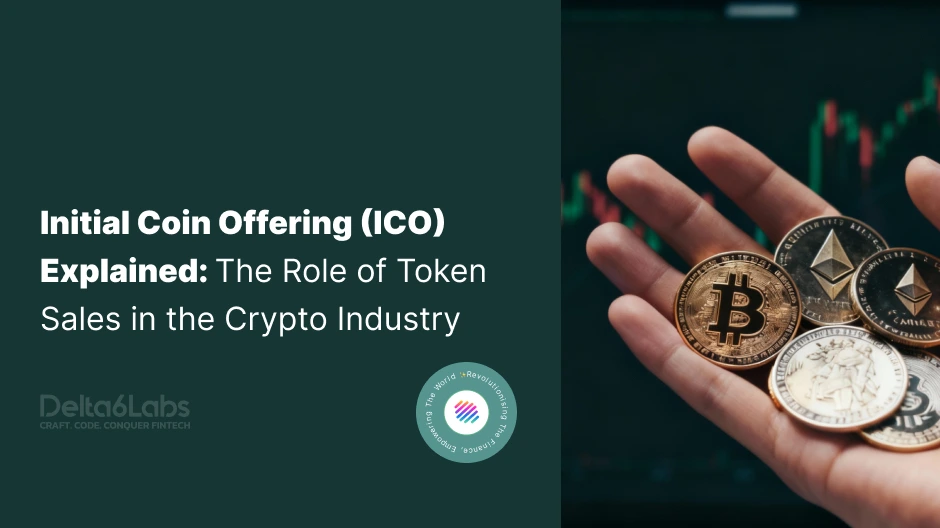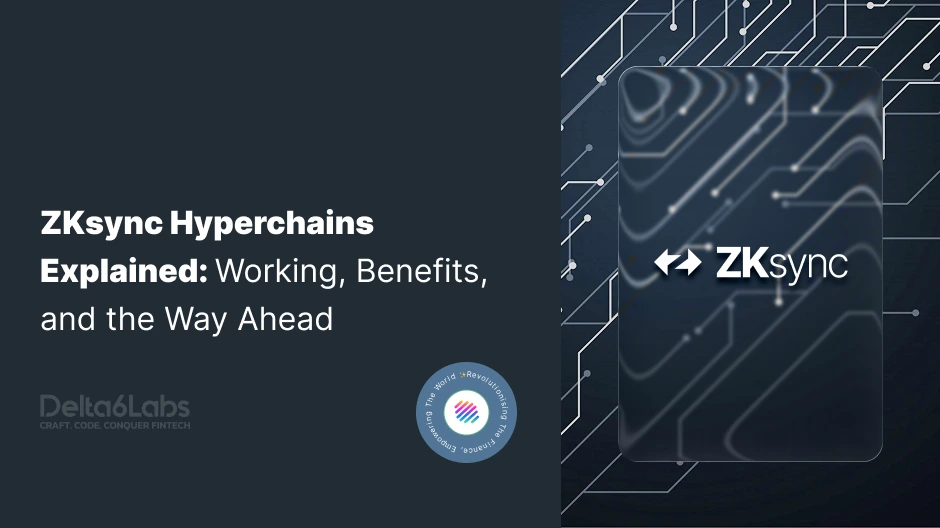ICO Explained: The Role of Token Sales in the Crypto Industry
Table of Contents
Key Takeaways
- From private and public ICOs to utility and security token offerings, projects can choose models that align with their funding goals, investor base, and regulatory requirements.
- By issuing digital tokens via smart contracts, ICOs enable startups to offer utility or security tokens that investors can trade, use, or hold, making fundraising fast, efficient, and borderless.
- Initial Coin Offerings (ICOs) provided blockchain startups a groundbreaking way to raise funds directly from global investors, eliminating traditional intermediaries like banks and venture capital firms.
- While ICOs democratize investment opportunities and provide instant liquidity, they also face major challenges like regulatory uncertainty, scams, and high market volatility.
- With improved compliance frameworks and investor protections, the next generation of token sales, ICOs, IEOs, STOs, and IDOs, will continue to shape Web3 fundraising and drive decentralized innovation.
The decentralized finance industry has seen remarkable growth and immense popularity in this decade and is still expanding its wings globally. The emergence of play-to-earn model, non-fungible tokens (NFTs), and blockchain-based applications has entirely transformed the financial landscape. Amid these developments, one concept that has played a pivotal role in fuelling this growth is the Initial Coin Offering (ICO).
Like Initial Public Offerings (IPOs) in traditional finance, ICOs became a primary fundraising method for blockchain startups, enabling them to secure capital without relying on conventional banking or venture capital channels. ICOs have paved the way for new entrepreneurs and small-budget businesses to enter the market by raising capital for their projects. Initial Coin Offering (ICO) Service Market size was valued at USD 5.3 Billion in 2024 and is forecasted to achieve USD 12.5 Billion By 2033, growing with a 10.3% CAGR. In this blog, we will explore the role of token sales in the crypto industry, what ICOs are, how they work.
What is an ICO (Initial Coin Offering)?
An Initial Coin Offering (ICO) is a fundraising mechanism used by blockchain-based projects to raise capital. Instead of offering shares in a company, ICOs issue digital tokens, which can serve various purposes within a project’s ecosystem. These tokens may provide access to a platform, utility in a service, or even represent a form of digital asset with some tradeable value. For example, in a gaming blockchain project, tokens sold during an ICO might allow users to purchase in-game items and accessories, participate in governance decisions, or trade on exchanges. Unlike traditional fundraising, ICOs bypass financial intermediaries, connecting entrepreneurs directly with a global pool of investors.
Working Methodology of ICOs
The ICO process generally follows a clear structure. First, project developers draft a whitepaper that acts as both a technical and business plan. The next step is token development, which usually takes place on existing blockchains such as Ethereum using standards like ERC-20. Once the tokens are created, the ICO is launched and made available to investors for a limited period.
Investors send funds to the project in exchange for these tokens, which are then distributed once the fundraising campaign ends. Following distribution, many projects list their tokens on cryptocurrency exchanges, allowing investors to trade them in open markets. This relatively simple process made ICOs an attractive option for startups seeking quick and efficient fundraising solutions.
Types of ICOs
ICOs are classified into following types:
Private ICOs
Private ICOs are exclusive fundraising events that limit participation to select investors, often institutions or individuals with significant financial resources. They are typically used to raise large amounts of money without public exposure.
Public ICOs
Public ICOs are open to everyone, irrespective of investment amount. This type of ICO is referred to as crowdfunding projects where people can invest small amount of money in the blockchain projects they believe. For example, Ethereum launched a public ICO in 2014, allowing people to buy ETH at low prices. In later years, Ethereum became successful, and the price of ETH increased, benefiting both the ecosystem and token holders.
Utility Token ICOs
ICOs can also be categorized based on the type of token they issue. Utility token ICOs distribute tokens that grant users access to a platform, service, or ecosystem.
Security Token ICOs
Security tokens ICOs represents ownership of digital or real-life assets or equity and are subjected to security regulations.
Key Features of ICOs (Initial Coin Offerings)
Here are the advantages of ICOs in the crypto industry:
Access to Global Capital
One of the primary advantages of ICOs is better accessibility. Blockchain startups can raise funds from investors worldwide without geographical restrictions.
Low Entry Barriers
Many people have limited budget, due to which they are unable to participate, but in ICOs small investors can also take part. Unlike IPOs, where investors need large capital and regulatory approval, ICOs allow participation with as little as $10 or less.
Fast and Efficient Fundraising
Another advantage of ICOs in the crypto industry is fast and efficient fundraising. Traditional fundraising can take months or years. ICOs often raise millions within weeks, speeding up development cycles.
Liquidity
Tokens purchased in ICOs can often be traded on exchanges soon after launch, providing liquidity for investors from the very beginning.
Engagement
ICOs help blockchain-based startups create a user base that is motivated to support their project in their early stages.
Disadvantages of ICO (Initial Coin Offering)
Here are the disadvantages of ICOs in the crypto industry:
Regulatory Uncertainty
One of the biggest disadvantages of ICOs is regulatory uncertainty in the crypto industry. Many governments around the world have classified ICOs as securities offerings, leading to bans, lawsuits, or heavy scrutiny.
Prone to Scams
Every segment of the cryptocurrency industry including ICOs is prone to several types of scams. During the 2017 ICO boom, thousands of fraudulent projects lured investors with fake promises, leading to billions in losses, and the credibility of blockchain-based startups was questioned.
Market Volatility
Another risk associated with ICOs is market volatility. In many cases, token prices often spike after launch but crash quickly, leaving many investors with significant losses. There are multiple examples of these kinds of incidents.
Lack of Investor Protection
There are no provisions for the protection of investors in case of losses. Unlike regulated IPOs, ICOs provide little to no protection if the project fails or founders disappear.
Technical Risks
Poorly written smart contracts or inadequate cybersecurity have led to hacking incidents and stolen funds. For example, in 2017, an ICO was hacked, hackers changed the official payment address, that resulted in a loss of $7 millions for investors.
Future of ICOs
While ICOs peaked in 2017, their influence remains undeniable even today. They introduced millions to cryptocurrency, drove blockchain adoption, and created a blueprint for digital fundraising and crowdfunding.
In upcoming years, with government rolling out more clearer regulations and better investor protections, ICO-like models could return in a more sustainable form. Token sales, whether ICOs, IEOs, or STOs will likely remain central to financing Web3 and decentralized ecosystems.
The Delta6Labs Edge
Delta6Labs provides the required competitive edge to the blockchain-based businesses and entrepreneurs in the cryptocurrency market by collaborating with investors globally. Founded in 2023, We have become a popular custom software development company in a very short time with our team consisting of blockchain pioneers, software engineers, and creative product designers. Our mission is to empower enterprises with secure, scalable, and innovative blockchain solutions that drive real-world impact. With a passion for technology and a vision for decentralization, we continue to shape the future of digital finance worldwide.
Conclusion
ICOs represent one of the most important milestones in the history of cryptocurrencies. By providing startups with global access to capital and giving investors a chance to participate in the early stage blockchain innovation, ICOs changed the face of fundraising forever. However, they also exposed the crypto community to scams, volatility, and regulatory risks, reminding investors to proceed with caution.
As blockchain continues to grow, ICOs and their evolved versions (IEOs, STOs, IDOs) will remain vital for funding the decentralized future. For investors, the key lies in conducting thorough research, analysing token utility, and ensuring regulatory compliance before participating in any token sale.
Frequently Asked Questions
Disclaimer:
The information on this blog is for knowledge purposes only. The content provided is subject to updates, completion, verification, and amendments, which may result in significant changes.
Nothing in this blog is intended to serve as legal, tax, securities, or investment advice of any investment or a solicitation for any product or service.






